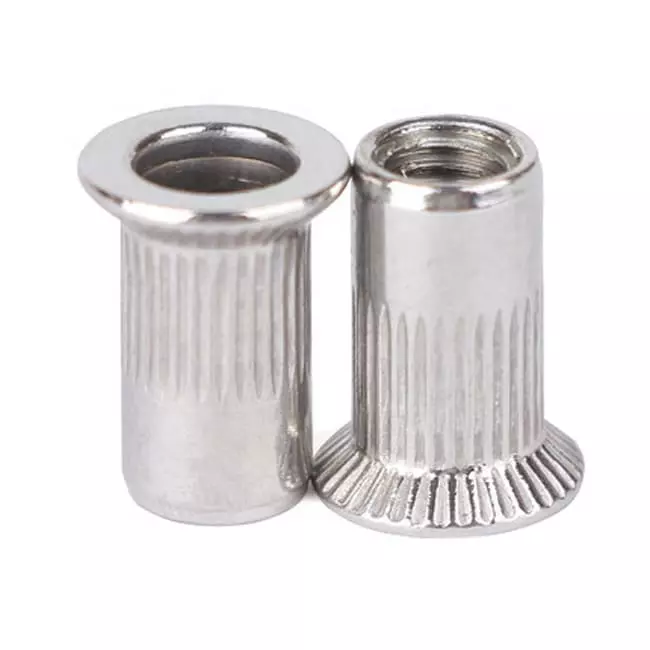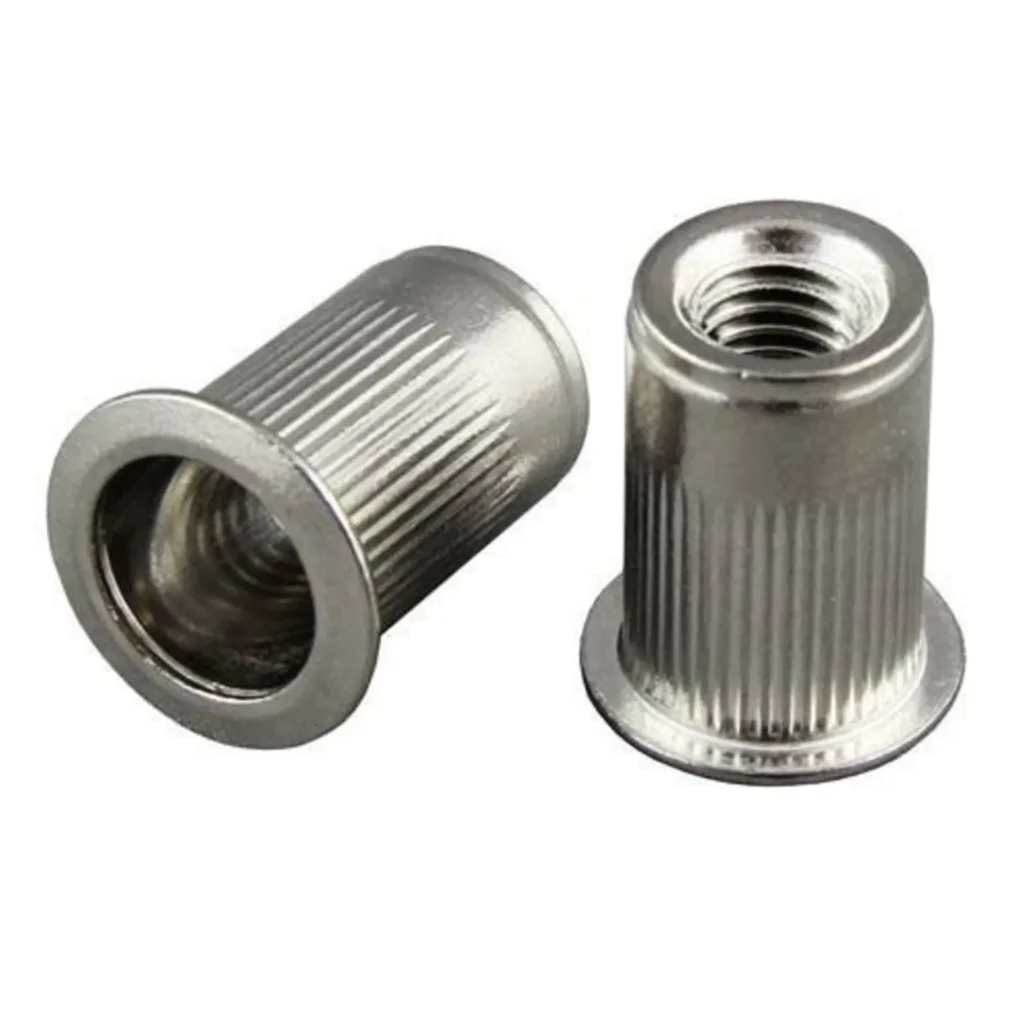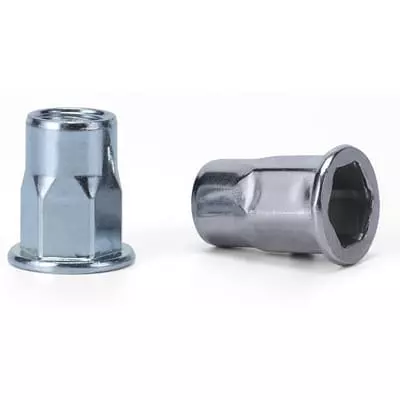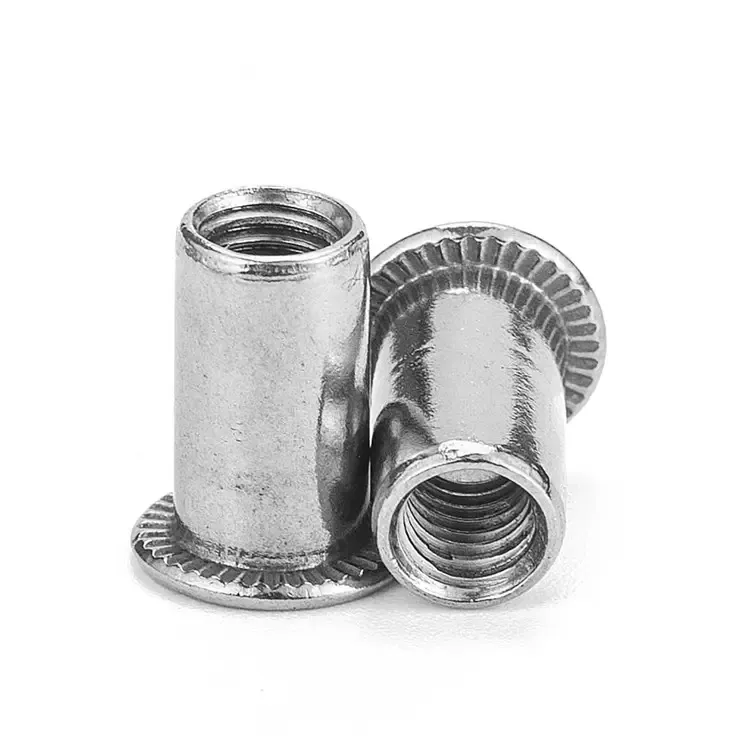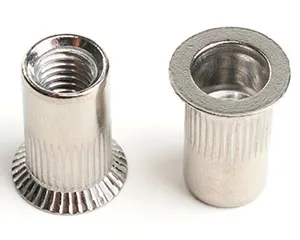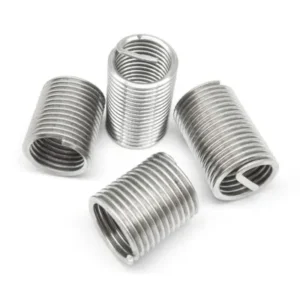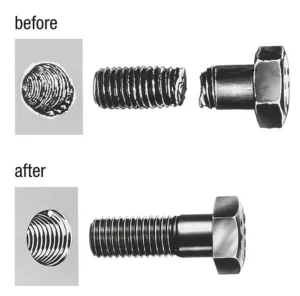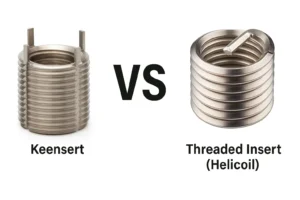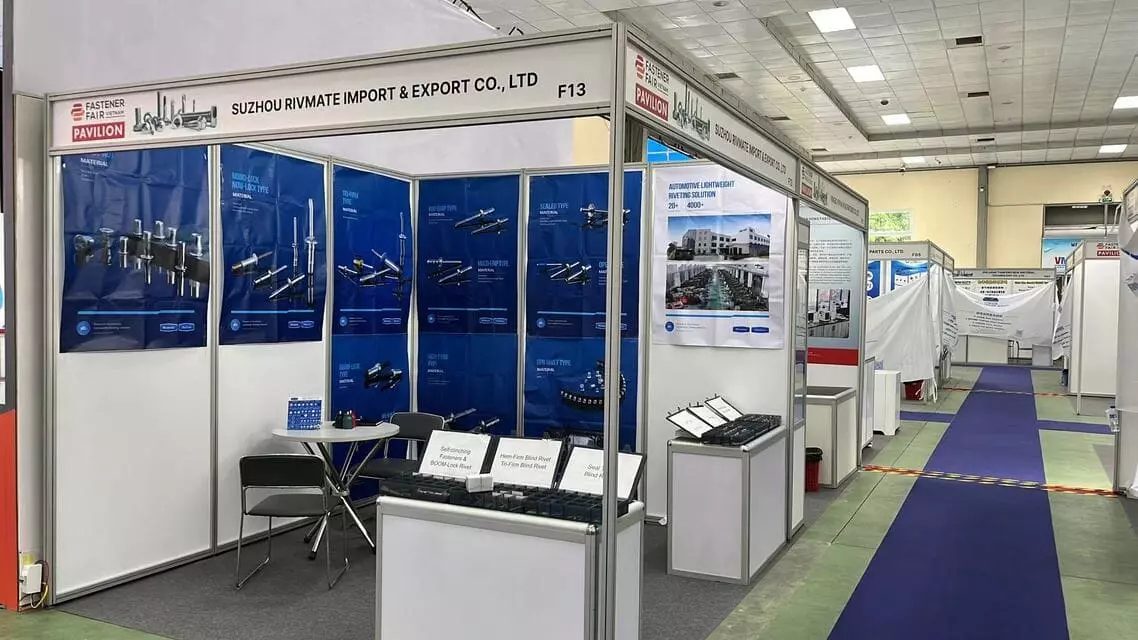How to Choose the Right Rivet Nuts for Sheet Metal?
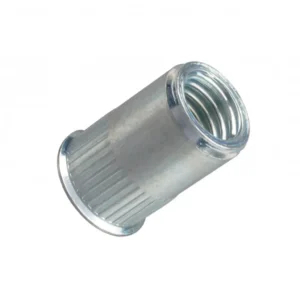
Leading Rivet Nut Manufacturer and Supplier in China

Choosing the right rivet nuts for sheet metal is crucial to ensure a secure, durable, and efficient fastening solution. With various types of rivet nuts available, each has unique benefits tailored to different applications. The choice depends on factors like material thickness, load requirements, and the desired aesthetic.
In this blog, we will guide you through the key considerations and help you select the ideal rivet nuts for your sheet metal projects, ensuring optimal performance and long-term reliability.
Table of Contents
Rivet Nuts - Basic overview
Rivet nuts are threaded fasteners that create strong connections in materials like metal, plastic, and wood. They expand inside the material to form a secure grip, providing a reliable anchor for bolts and screws. These fasteners were invented in the 1950s to offer an efficient solution for creating threaded connections in thin or soft materials. The principle of action relies on radial expansion, which deforms the nut’s body to secure it in place.
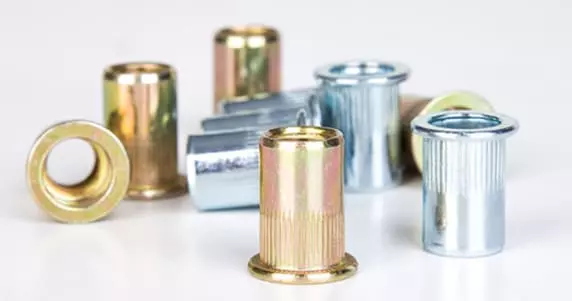
Rivet nuts are classified into standard and blind varieties, offering a single-side installation. They are commonly used in automotive, aerospace, electronics, and furniture manufacturing. These fasteners excel in applications where conventional threading is not feasible, such as in thin materials or hard-to-reach areas. Their ability to provide reusable threaded connections makes them a versatile choice in various industries.
What are Sheet Metals?
Sheet metals are thin, flat pieces of metal that are formed by industrial processes like rolling or pressing. These metals come in various thicknesses, typically ranging from 0.15 mm to 6 mm, though they can be thicker or thinner depending on the application. Sheet metal is commonly used in industries such as automotive, construction, aerospace, and manufacturing.
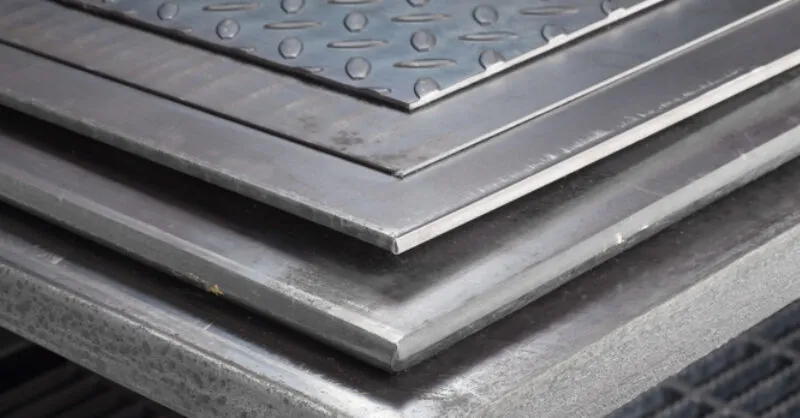
Key Characteristics of Sheet Metals
Material Composition:
Sheet metals are made from a variety of metals, including: Steel (carbon steel, stainless steel), Aluminum, Copper, Brass, Titanium, Nickel alloys
Thickness:
Sheet metal thickness is usually measured in gauge (a number that corresponds to the thickness) or in millimeters or inches. Thicker materials may be called “plate metal,” while thinner sheets are referred to as “foil.”Formability:
Sheet metals are easily formable through processes like:
Bending: Changing the shape of the metal along a straight axis.
Stamping: Using a die to shape or cut metal sheets.
Punching: Creating holes or other shapes in the metal.
Rolling: Reducing thickness or changing the shape by passing the metal through rollers.
Common Applications of Sheet Metals
- Automotive: Used for car bodies, engine parts, and frames.
- Construction: For roofing, siding, gutters, and HVAC ductwork.
- Aerospace: Used in aircraft skins, wings, and fuselage components.
- Electronics: For enclosures, chassis, and heat sinks.
- Industrial Equipment: In machinery, tool enclosures, and panels.
Why Use Rivet Nuts on Sheet Metal ?

1. Strong Fastening
Rivet nuts provide secure, reliable threads in sheet metal, eliminating the need for welding or other permanent fasteners. Their design ensures consistent threading, making them ideal for applications with vibration or dynamic forces. Rivet nuts are particularly effective for thin or soft sheet metals, where traditional threading or welding may not be feasible.
2. Prevents Damage
Rivet nuts prevent damage to sheet metal by distributing stress evenly across the surface. They eliminate the need for punching or threading, which can deform thin materials. The installation process minimizes pressure on the surrounding area, reducing the risk of warping. By providing a secure, internal thread, rivet nuts ensure a stable connection without compromising the integrity of the sheet metal. This makes them ideal for delicate or lightweight materials that could be easily damaged by other fastening methods.
3. Quick Installation
Rivet nuts enable quick installation with minimal tools, reducing labor time significantly. They can be installed from one side of the material, eliminating the need for complex setups. The process is simple, requiring only a hand rivet nut tool or a specialized setting tool. Installation is fast, often taking only a few seconds per nut, making them ideal for high-volume production. This efficiency helps reduce overall assembly time and costs in manufacturing or repair applications.
4. Lightweight
Using rivet nuts on sheet metal offers several advantages, with lightweight being a key benefit. Unlike traditional bolts or screws, rivet nuts allow for secure fastening without requiring heavy or bulky hardware, maintaining the sheet metal’s lightness. This makes rivet nuts ideal for applications in industries like automotive and aerospace, where reducing weight is crucial for performance, fuel efficiency, and cost-effectiveness.
Do You Have Any Questions?
Let Us Solve Your Problem
How Thick of Metal Can You Use Rivnuts on ?
Rivet nuts can be used on a wide range of metal thicknesses, typically from 0.5 mm to 8 mm. The exact thickness depends on the rivet nut’s size, material, and the tool used for installation.
It’s important to select the right rivet nut size and material to ensure a secure and reliable connection, considering the load-bearing requirements and the thickness of the metal.
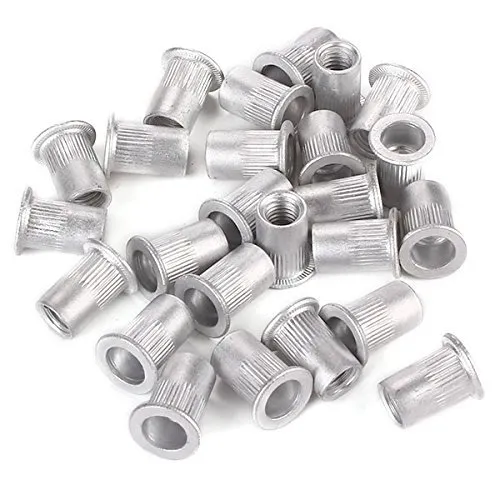
They are generally suitable for use with metal thicknesses ranging from 0.5 mm to 5 mm. The exact range can depend on factors like:
- Size of the rivet nut: Larger rivet nuts can handle thicker materials, while smaller ones are more suitable for thinner metals.
- Material type: Aluminum rivet nuts are best for soft or thin materials like aluminum, sheet metal, plastic, and composites.
Aluminum rivet nuts work well in applications where lightweight, corrosion-resistant, and cost-effective solutions are needed. However, for thicker materials or high-strength applications, steel or stainless steel rivet nuts are more suitable.
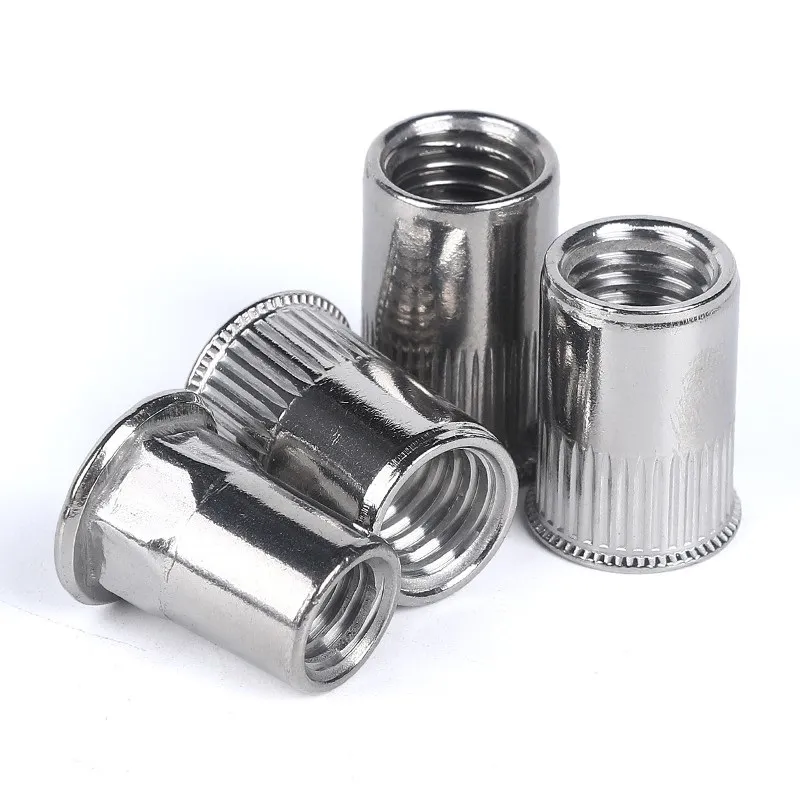
They are typically used on thicker materials, with a recommended range of 1 mm to 8 mm in thickness. The exact range will depend on the following factors:
- Rivet nut size: Larger rivet nuts can be used for thicker materials, providing greater strength and durability.
- Material type: Steel rivet nuts and stainless steel rivet nuts are ideal for high-strength applications and materials like steel, aluminum, or thick sheet metal.
- Load requirements: they can handle heavier loads and more demanding conditions, making them suitable for heavy-duty applications.
These rivet nuts are commonly used in industries like automotive, aerospace, and construction, where high strength, vibration resistance, and durability are critical.
Types of Rivet Nuts for Sheet Metal
When selecting rivet nuts for sheet metal, different types cater to specific needs based on the application and material characteristics.
Countersunk Head Rivet Nuts
Design: Features a conical head, designed to sit flush with the surface after installation.
Ideal for applications where a smooth, aesthetic finish is required, such as in aerospace or automotive industries.
Prevents protrusions, which is useful for streamlined designs.
Flat Head Rivet Nuts
Design: Has a flat, wide head that distributes load evenly.
Common in applications where the rivet nut needs to create a secure, wide surface contact with the base material.
Provides superior load distribution and prevents the rivet from pulling through thin or soft materials.
Reduced Head Rivet Nuts
Design: Features a smaller flange, reducing the height of the installed rivet nut.
Perfect for tight spaces where there is limited clearance.
Allows installation in confined areas, without compromising the strength of the threaded connection.
Hex Body Rivet Nuts
Design: Features a hexagonal shape, which enhances the grip and prevents the nut from rotating during installation.
Ideal for high-torque applications and those needing high mechanical strength, such as in automotive and machinery sectors.
Superior torque resistance and prevents rotation under load.
Round Body Rivet Nuts
Design: Has a simple cylindrical shape with no additional contours or features.
Versatile and commonly used in general-purpose applications across various industries.
Easy to install and suitable for non-specialized applications.
Knurled Body Rivet Nuts
Design: Features a textured surface (knurling) on the body for better grip in the material.
Used when extra resistance to rotation is needed, such as in thin or soft materials.
Provides strong anchorage and prevents the rivet nut from loosening under stress.
How to Choose the Right Rivet Nut for Sheet Metal?
Choosing the right rivet nut for sheet metal involves considering several factors to ensure strength, durability, and ease of installation.
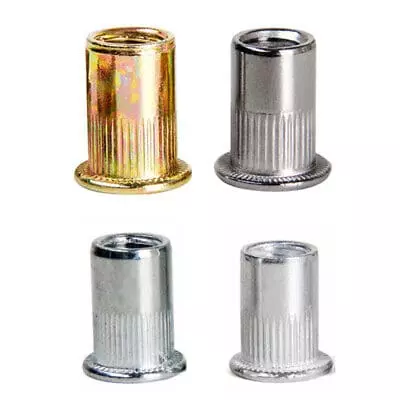
1. Material Compatibility
Ensure the rivet nut material is compatible with the sheet metal. For example, use aluminum rivet nuts for lightweight applications and steel or stainless steel for heavier-duty needs.
2. Head Type
- Countersunk Head Rivnut: Choose if you need a flush finish on the surface. Ideal for applications requiring an aesthetic, smooth finish.
- Flat Head Rivnut: Opt for when you need load distribution across a wide surface, preventing the rivet from pulling through soft or thin materials.
- Reduced Head Rivnut: Best for tight spaces with limited clearance, where a lower-profile installation is required.
3. Environmental Factors
If the application will be exposed to moisture, chemicals, or harsh conditions, select materials like stainless steel for corrosion resistance.
4. Vibration Resistance
For applications with vibrations (e.g., automotive or machinery), opt for rivet nuts that offer strong resistance to vibration, such as steel or stainless steel options.
5. Space Constraints
Consider the available installation space. For tight spaces, a reduced head rivet nut or hex body rivet nut can help provide strong, low-profile connections.
FAQs - Rivet Nuts for Sheet Metal
How to improve the rivet nut on sheet metal?
To improve rivet nut performance on sheet metal, ensure you are using the correct size, material, and type of rivet nut for your specific application.
First, choose a rivet nut with a proper grip range that fits the thickness of the sheet metal. You should also select a material that matches the metal’s strength requirements (e.g., aluminum for light-duty or steel for heavy-duty applications). Installing the rivet nut with the correct torque and using the appropriate installation tool, such as a pneumatic or hydraulic tool, will help improve the connection’s reliability and prevent slippage.
How do I fix a rivet nut that rotates or loosens after installation?
If a rivet nut begins to rotate or loosen after installation, there are several approaches to fix the issue.
First, ensure the rivet nut was properly installed with the correct tool and torque. If the nut is spinning due to insufficient grip, use a higher-strength rivet nut with anti-rotation features such as knurling or serrated edges. Another option is to apply thread-locking adhesive (e.g., Loctite) to the threads before installation, which can prevent loosening. In some cases, adding a locking washer or using a rivet nut with a locking mechanism can provide additional security.
Can you use rivet nuts in plywood?
Yes, rivet nuts can be used in plywood, but proper selection and installation are key for a secure connection. For optimal results, use rivet nuts with a smaller flange size and knurled or serrated body to ensure a good grip in the soft material.
The plywood should be at least 1/8 inch (3 mm) thick for effective installation. Aluminum rivet nuts typically provide tensile strength ranging from 200 N to 500 N and shear strength from 150 N to 350 N, though steel or stainless steel options offer higher strength.
It’s also important to avoid over-tightening, which can damage the plywood, and consider reinforcing the area with a backing plate for increased durability and load distribution.
Do You Have Any Questions?
Let Us Solve Your Problem
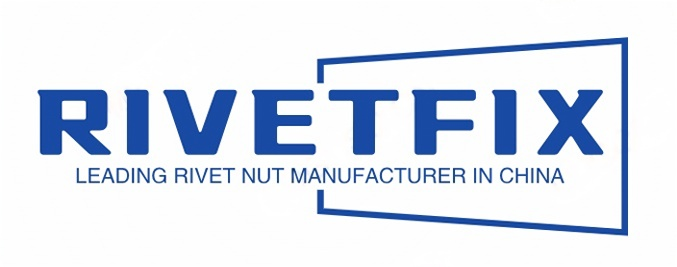
Rivetfix is your trusted partner for premium rivet nut solutions, offering a wide range of high-quality fasteners designed to elevate your projects. Whether you’re working with sheet metal, plastic, or other materials, our rivet nuts provide durable, reliable, and easy-to-install threaded connections.
We can select the most suitable fasteners according to your project needs, and provide product customization services. With a commitment to quality and customer satisfaction, Rivetfix delivers the perfect solution for your fastening needs, ensuring that your projects are secure, efficient, and built to last.
Contact us for project advice and the latest rivet nut quote!
Get High Quality Rivet Nuts Quote!
Send Your Rivet Nut Request
For more than 20 years, Rivetfix has helped customers solve many rivet nuts sourcing needs and technical challenges.
Have a question? Contact us and we’ll provide you with the perfect solution.
